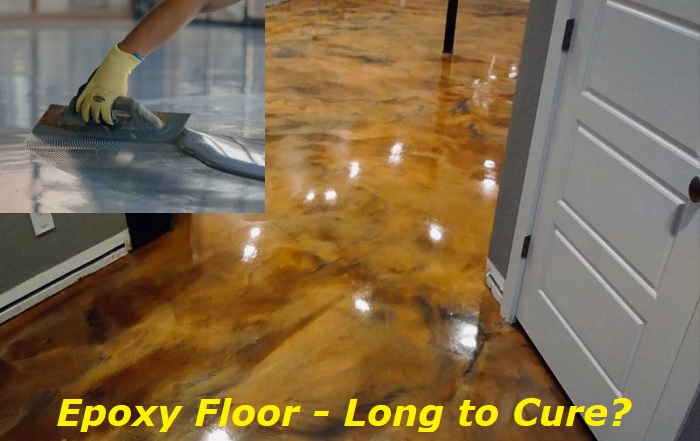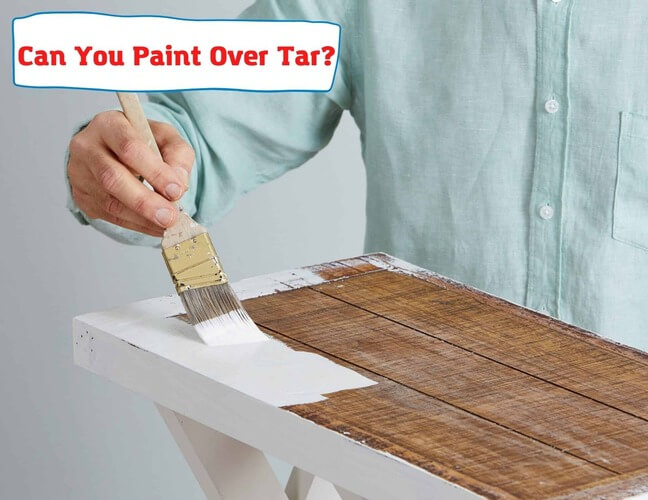Epoxy flooring has been one of the trendy and classy ways to style your floor. Apart from the esthetic benefits, it is durable and can withstand abrasions for a long time.
While it may be tempting to use epoxy flooring, homeowners often ask how long for epoxy floor to dry.

This article discusses the following:
- What Epoxy flooring is
- How long epoxy flooring takes to dry
- What affects the drying time of epoxy flooring
- How to speed up epoxy drying time
- Easy ways to check if it is dry
Epoxy Flooring
Epoxy is a polymer, a group of specific chemical compounds with large molecules and recurring subunits. It is a family term for a group of cured end products of epoxy resins.
Epoxy resins are a group of reactive prepolymers and polymers that may react with a variety of co-reactants, also known as hardeners, to work as adhesives, composite materials, and other uses.
Its application includes use for protective surface materials, painting and coating, industrial tooling, and flooring purposes.
Epoxy flooring is one of the many ways epoxy resins are used, and it is the covering of a surface area with numerous layers of epoxy applied on the marked floor area at no less than 2 mm depth.
This is different from epoxy floor coating. While the application of epoxy to cover the floor with many layers at a depth of no less than 2mm is epoxy flooring, epoxy floor coating is technically the covering of the floor with epoxy but at any depth less than 2mm.
How Long for Epoxy Floor to Dry?
It usually depends on the type of product, the prevailing temperature, the level of humidity, and the nature of the floor surface you are working on.
But on average, it takes about 7 days at 65°F (20°C) for the epoxy to cure completely. Technically, the floor is usually “walkable” on the third day after its application, as it would have reached 90% of its capabilities. But you cannot put any heavy weights on it.
Some products may cure faster, while others may take longer. But it is recommended that you let it be for 7 days at about 65°F (20°C) to cure completely, especially if it is a new project.
Factors That May Increase Epoxy Floor Curing Time
Some factors may cause the extension or reduction of the curing time. These factors include:
● The Product type
The epoxy product you are using can also affect your cure time. Many think that the more ventilation they can provide, the faster the curing time.
While this may be true for some epoxy products, opening all your windows will not decrease the curing time for others.
Many of these fast-curing products are engineered to satisfy the needs of business places that cannot shut down for too long without incurring significant financial losses.
● The Prevailing Temperature
Warmer weather conditions will speed up the curing process, while cold weather will increase the curing time. So, curing in warm weather is naturally faster.
Sometimes, it is faster, especially when a certain area experiences heat waves. At times like that, the curing process may take anywhere between 4-5/6 days.
But everything is really slow with cold weather. Cold weather also affects the final results of the epoxy flooring sometimes.
The ideal temperature range for a quicker curing period is 65°F- 80°F. Epoxy flooring can withstand temperatures up to 300°F, but that would not be necessary. If the temperature is 65°F-80°F, the drying time should be no more than 4-7 days.
● The Level of Humidity
Epoxy floors need a specific condition for a perfect result. Humidity plays a critical role in this regard.
Humidity is how much water vapor is in the atmosphere at a given time. This is important to note because moisture in the air can result in a cloudy cure and a blurry finish. The ideal level of humidity should be anything around 50%-60%.
With a 50% humidity level and a temperature range of 65°F maintained throughout the cure period, you should have a lesser curing time.
But note that even with these parameters, the epoxy product you are using and the nature of the surface area you are working with may increase the curing time.
● The Nature of the Floor
Apart from curing time, applying epoxy to the concrete floor at the wrong time can be a costly mistake. You want to observe your environment and the epoxy product you will use.
A newly built floor should ideally have a shorter curing period compared to an unevenly contoured floor which will require more attention. However, many people like to leave the epoxy floor of a new building for longer to cure fully.
It is risky to apply epoxy on concrete at night or when the concrete is warming up. The best time to apply coatings is during the mid-noon. This is the time when the concrete is cooling.
It is not recommended that you coat a concrete floor that is not entirely cured or still soft. This will cause many issues, including outgassing which will increase the final cure time as many other repairs and fixes will be done.
What Are Some Easy Ways To Check?
The final cure is the proof of the completion of the epoxy’s chemical reaction. In this final cure stage, the chemical reactants are left to bond and cure into a solid state.
It would be ideal not to check for the first 2 days. However, 90% of the curing process is achieved in the first 2 days. After the first 2 days, you want to wait 4 to 7 days for the epoxy floor to cure fully.
Trying to dent an end with your thumbnail is one of the obvious ways to check whether the epoxy floor is fully cured. It would be best to limit the attempt to an end.
If you tried to dent the middle or any spot far within, it might take some serious extra work to level the dent back again. So, try to dent it only from an end.
You will have to push your thumbnail against the finished job. Ideally, your thumbnail should not make a dent or push through if it has cured to a finish.
You can try again after some time. Once you cannot dent the epoxy, it has reached the final cure stage. At this stage, no other epoxy coating will attach to it. You would have to sand it to improve the mechanical adhesion of any new coating.
Another way is to observe the smell. A fully cured epoxy floor will not give off any strong odor. Ideally, the strong fumes lessen as the epoxy product begins its curing process.
How Can I Speed up Epoxy Floor Curing Process?
When working with epoxy for flooring, patience and due diligence can help you get a perfect job and avoid expensive repairs or redos in a short time.
However, here are some ways to speed up epoxy floor curing time:
● Choose The Right Product
There are some very fast-curing epoxy products. These products aim to specifically satisfy the needs of business outfits that can lose a lot of money if closed for a long time.
But the downside to this option is that these products require many epoxy flooring experts to keep up with the speed of the product, as the working time for application is very short.
A quick return to work is a great idea, especially for high-traffic businesses and businesses with perishable goods. But a sped curing process can present problems later in the nearest future.
You want to ensure that you are using the right product the way it should be applied. You also want to check the technical data sheet to know what you are dealing with.
Of course, you will need the help of chemical experts to understand the ingredients in the product, which is why it is important to employ professionals.
● Ensure That The Working Conditions Are Right
Epoxy products are largely moisture-cured. They harden with exposure to moisture and heat.
So you can speed curing time by ensuring that the level of humidity is appropriate and the temperature is nothing below 65°F.
You want to work in an environment with 50-80% humidity. You can increase ventilation by opening all the windows and leaving fans on for optimal airflow in the working area.
Important Notice
You want to ensure that the floor you are working with is in good condition. If the integrity of the floor surface is in question (such as a substandard concrete slab), the product will need a slower processing time to cure and grip the floor surface properly.
Final Thoughts
Epoxy flooring is a great idea. But the right amount of curing time affects the quality and durability of a good job.
Speeding the curing time or using the wrong product for your floor because you want to get back in business as soon as possible could present some challenges in the future.
It would be best to sacrifice the short time needed for a perfect cure and enjoy the result over a long time than to rush the process and end up with a repair or redo in a short time.
- Can You Unmix Paint: Techniques, Consequences, Alternatives - February 23, 2024
- Does Primer Need to be Mixed? Effective Primer Application - February 22, 2024
- How to Make Old Paint Usable Again: Retrieving and Preserving Paint - February 21, 2024



